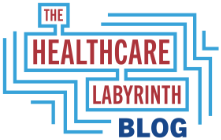Some consensus on reforms, but many structural changes missing
A recent Senate Health, Education, Labor, and Pension (HELP) Committee meeting was not terribly instructive but yielded some ideas where Democrats and Republicans could come together on at least incremental healthcare reforms.
The committee heard testimony from various constituencies, including health plans. The panelists focused on the following:
Greater price transparency – Panelists and lawmakers overwhelmingly viewed transparency as a key reform to bring greater efficiency to the healthcare system. The Trump 45 administration passed a transparency rule, which was backed and strengthened by the Biden administration and now Trump 47. Various congressional bills would further augment the transparency mandates on hospitals and health plans and make these provisions statutory vs. regulatory.
Employer coverage transparency – The committee learned a lot about the opaqueness of price and costs in the employer world. One bill in Congress would require a set of new reporting requirements from health plans and pharmacy benefits managers (PBM) to self-insured employer plans. See my detailed blog here on this topic: https://www.healthcarelabyrinth.com/chopping-away-at-the-employer-coverage-thicket/ .
PBM reform – PBM reform also had widespread, bipartisan support. PBM reforms could take many forms, including banning spread pricing, eliminating rebates, mandatory transparency reporting, and more.
Anti-trust and vertical integration – Panelists and lawmakers also debated the impact of the growing consolidation in the industry, whether health plans, providers, hospitals, or private equity. A great deal of attention focused on vertical integration of some of the major national plans. These plans have insurance, PBM, provider, pharmacy and service entity assets and enter into non-arm’s-length agreements with each other to raise price and disadvantage employers, government, and individuals. These deals also get around the minimum medical loss ratio requirements in place in most lines of business. There is a growing consensus that acquisitions as well as vertical integration need to be closely scrutinized.
Health plan reform – Panelists and lawmakers also discussed the need for further health plan reform, including accountability, prior authorization, major out-of-pocket costs in benefit designs, and more.
The problem of the uninsured and underinsured – One panelist focused a great deal on the uninsured and underinsured crisis we have in the nation. Both lead to people avoiding care.
340B – Panelists and lawmakers also discussed the need to re-examine the 340B drug discount program. Safety net providers, including certain hospitals, obtain these discounts upfront under law, yet evidence suggests that the lower costs are not passed on to those the program was intended for. In fact, 340B entities appear to charge everyone more and retain the discounts for margin compared with those healthcare entities that do not have access to the program.
Greater drug price reform – Greater drug price reform also was discussed. President Trump has laid out an expansive set of reforms in a series of executive orders and other announcements. The opaqueness of pricing in a shadowy channel is front and center, along with rebate reform and brand drug pricing.
The fallout of the OBBBA – One panelist even snuck in the major fallout of the OBBBA – greater uninsured, the huge costs of work requirements, the reining in of provider taxes, and projected increases in morbidity and mortality.
Medicare for All – Some panelists and lawmakers argued a single-payer Medicare for All program nationwide would be an answer. I stand very much opposed to this given the inherent fraud, waste, and abuse in the system. Further, getting to true value-based approaches instead of transactional payment is a near impossibility in my view.
What was missed?
I am on board for most of the proposals above, save for too much health plan restrictions and Medicare for All. The points on the OBBBA fallout, especially on coverage, are real.
But I do not see much of the discussion as having seismic change in healthcare – at least not right now. I have made the case for a three-pronged approach to healthcare reform.
- Universal, affordable healthcare coverage, including subsidies for those who cannot afford care. The OBBBA clearly takes us backward on this issue.
- A pivot from our obsession with prior authorization and utilization management instead of true care and risk management. The primary care crisis, brought about by massive underfunding of Medicare rate hikes over decades, has thoroughly eroded health, wellness, and prevention. Instead, greedy hospitals, health plans, and private equity firms have gobbled up physicians, changed practice patterns to high-cost places of service, and increased price and costs.
- Price reform in both the medical service and drug worlds. We can keep private sector plans and innovation even as we institute national drug pricing as well as either national or regional medical service pricing. The fee schedules would apply across all lines of business and would serve to stabilize employer and commercial coverage.
For those who see that as too radical, there is site neutral payment reform. I remain mystified why there is so little interest in pursuing comprehensive site neutrality in Medicare, which would save hundreds of billions over time in both Medicare and commercial coverage. It would be an immediate re-engineering of price and lead to reductions in the cost of care, premiums, and out-of-pocket costs.
See my complete proposals for healthcare reform at these blogs. As well, my book dives even deeper on these topics.
Healthcare reform blogs:
https://www.healthcarelabyrinth.com/a-modest-election-year-proposal-for-healthcare-reform/
The Healthcare Labyrinth book:
https://www.healthcarelabyrinth.com/book/
#healthcare #healthcarereform #healthinsurance
— Marc S. Ryan





